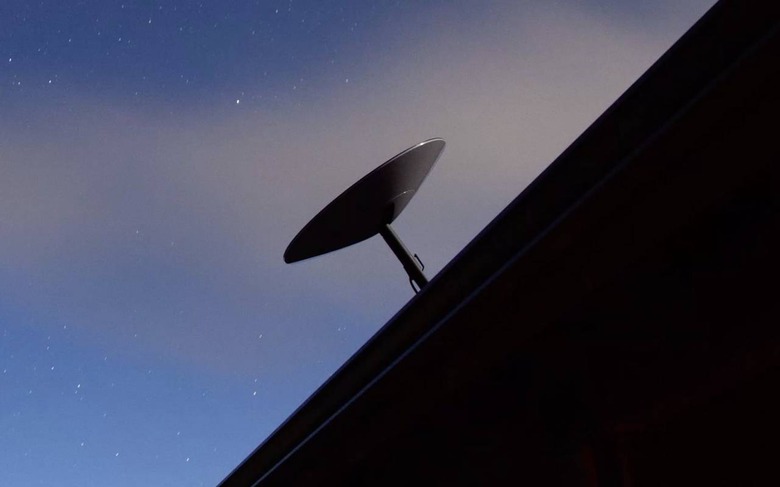SpaceX Scrubs Delayed Starlink Launch - Again
SpaceX has scrubbed another Starlink launch, with the rescheduled blast-off suffering another setback. The mission had initially been intended to take place on September 17, but was called off at the last moment due to a recovery issue; weather later impacted a second attempt.
It's the thirteenth Starlink launch, set to put another batch of the company's internet satellites into the growing constellation. Starlink promises terrestrial broadband speeds but without fixed infrastructure, combining the satellites in low-Earth orbit with a specially designed tracking receiver dish on the ground.

Actually getting satellites into that constellation, however, hasn't always been easy – or free of controversy. Today's sixty satellite launch was meant to take place at 9:17am EDT, with the Falcon 9 rocket at the Kennedy Space Center in Florida. According to SpaceX, however, that plan had to change shortly before the launch was due.
"Standing down from today's Starlink mission due to an out of family ground system sensor reading," the company tweeted, "will announce a new target launch date once confirmed on the Range."
It's one of two launches that SpaceX had planned for this week. GPS III-4 is due to blast off at Kennedy on Friday, October 2, having been rescheduled already. There's a 15 minute window from 9:43pm EDT, SpaceX says.
The Starlink mission will be an opportunity not only to deploy more satellites, but further demonstrate SpaceX's commitment to reusable space tech. The Falcon 9 being used has a first-stage booster that has already flown twice, for example. After the launch, the plan is to capture it on one of SpaceX's robotic recovery ships, so that it can be used again.
While it's a frustration for the company, not everybody will be disappointed that the Starlink constellation is slow to grow. The project has faced vocal criticism from some quarters, with astronomers complaining that the glinting satellites can interfere with ground-based telescopes. SpaceX countered that by promising to use a new, anti-reflective coating on its hardware, which it says will cut the amount of light bounced back to Earth.
Meanwhile, SpaceX's work with NASA continues, as the first Crew Dragon launch with astronauts gets scheduled for October 31. That follows a successful return by the test flight to the International Space Station last month. Although later than initially intended, the delay allows for more time for astronauts and cosmonauts currently on the ISS to further investigate air leaks at the space station.
